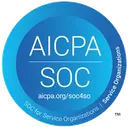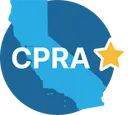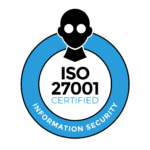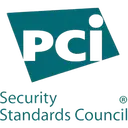California’s Consumer Privacy Act (CCPA) and its amendment, the California Privacy Rights Act (CPRA), represent landmark legislation that significantly impacts how businesses handle consumer data. Understanding the costs associated with CCPA audits and compliance is essential for organizations to budget appropriately and avoid potentially costly penalties.
The financial investment required for CCPA compliance varies widely based on company size, data handling practices, and existing privacy infrastructure. While small businesses might spend between $5,000 and $75,000 to achieve compliance, large enterprises often budget $100,000 to $2 million or more. These costs aren’t just one-time expenditures but include ongoing operational expenses to maintain compliance.
With the California Privacy Protection Agency (CPPA) now actively enforcing the law, organizations face real financial risks for non-compliance. Administrative fines, litigation, and mandatory remediation can significantly exceed the cost of proactive compliance measures.
This guide will provide a comprehensive breakdown of typical CCPA audit costs, examining the key factors that influence pricing, and offering practical strategies to maximize your compliance investment. We’ll explore how company size, technical infrastructure, existing privacy frameworks, and operational practices affect your overall compliance budget. Additionally, we’ll provide actionable recommendations to help reduce costs while maintaining robust privacy protections.
By understanding the full scope of potential expenses, you’ll be better positioned to develop an effective compliance strategy that protects both your customers’ privacy and your organization’s bottom line.
Cost components
Implementing and maintaining CCPA compliance requires budget allocation across several distinct areas. Understanding these components helps organizations forecast expenses and prioritize investments.
Readiness assessments form the foundation of your compliance program. These typically include data mapping, gap analysis, and risk evaluation exercises that identify where your organization stands relative to CCPA requirements. Pricing generally ranges from $5,000 for small organizations to $80,000+ for complex enterprises with sophisticated data processing activities.
Remediation work encompasses the changes needed to address compliance gaps. This often represents the largest variable cost, as it may include implementing new data subject request processes, updating privacy notices, modifying data retention practices, and enhancing security controls. Organizations with significant technical debt or complex data environments should anticipate higher costs in this category.
Auditor fees cover independent verification of your compliance measures. Whether conducted by specialized privacy auditors or general compliance firms, these assessments validate your CCPA implementation. Standard privacy program assessments typically range from $30,000 to $80,000, with pricing varying based on scope complexity and organizational size.
Compliance tools and platforms automate and streamline ongoing compliance activities. These include data subject request management systems, consent management platforms, vendor risk management tools, and comprehensive GRC solutions. Most vendors use value-based pricing models that scale with your organization’s size and needs, ranging from a few thousand dollars annually for basic tools to six figures for enterprise-grade platforms.
Internal staff time represents a substantial but often overlooked expense. This includes privacy professionals’ salaries, training costs, and time spent by IT, legal, and operational teams implementing and maintaining compliance measures. IAPP benchmarking indicates that in mature privacy programs, internal costs often significantly outweigh external expenses.
Factors influencing cost
The price tag for CCPA compliance varies significantly based on several key factors that organizations should consider when budgeting.
Company size and data complexity drive baseline costs. Larger organizations with more extensive data processing operations face higher costs across all categories. This correlation exists not just because of scale, but because larger companies typically have more complex data flows, more vendors, and greater numbers of data subject requests to manage.
Pre-existing privacy maturity significantly impacts incremental expenses. Organizations that already maintain robust privacy programs—particularly those with GDPR compliance—typically face lower costs when implementing CCPA requirements. Many foundational elements like data inventories, privacy notices, and basic consumer rights processes can be adapted rather than built from scratch.
Technical architecture and system integration affect remediation costs. Organizations with fragmented systems, significant technical debt, or heavily customized applications typically face higher implementation costs. The ability to easily locate, access, modify, and delete personal data across systems is a key cost driver for both initial compliance and ongoing operations.
Data subject request (DSAR) volume directly impacts operational expenses. Recent industry benchmarks show DSAR volumes increasing significantly year-over-year, with deletion requests growing particularly rapidly. Organizations receiving hundreds or thousands of requests need more sophisticated automation to manage costs, as manual processing averages over $1,500 per request.
Vendor ecosystem complexity multiplies third-party risk management costs. Companies working with numerous data processors face higher costs for vendor assessments, contract updates, and ongoing monitoring. The cost differential can be substantial, with per-vendor costs ranging from hundreds to thousands of dollars depending on risk level and assessment approach.
Regulatory scrutiny and enforcement priorities create variable risk exposure. As the California Privacy Protection Agency (CPPA) continues to develop and enforce regulations, compliance expectations are evolving. Recent enforcement actions demonstrate that penalties plus mandated remediation can significantly impact the total cost of non-compliance.
Example scenarios
Companies of different sizes face significantly different CCPA audit costs and timelines. The scope, complexity, and existing privacy maturity all influence what an organization might expect to pay when preparing for CCPA compliance.
Seed-stage SaaS startup (20 employees)
A small technology startup with primarily U.S. customers can expect relatively manageable CCPA audit costs. With limited historical DSAR volume and some GDPR awareness already in place, their compliance journey might look like this:
Initial assessment and roadmap typically ranges from $5,000-$25,000. Legal document updates and reviewing a handful of vendor DPAs might add another $2,000-$6,000. Basic DSAR handling and consent management solutions will likely cost $5,000-$15,000 annually.
Timeline to operational compliance is typically 4-12 weeks. The total first-year investment falls between $12,000-$46,000, making CCPA compliance reasonably achievable even for resource-constrained startups.
Mid-market e-commerce company (300 employees)
Mid-sized companies with moderate data processing face more substantial costs but gain proportionally greater risk reduction. An e-commerce business with U.S. and California customers handling a moderate volume of DSARs might encounter:
A comprehensive assessment costing $30,000-$80,000. Remediation and engineering changes to address gaps might range from $50,000-$300,000, varying significantly based on technical debt and integration complexity. DSAR automation platforms typically cost $10,000-$75,000 annually, while legal and contract work adds another $10,000-$50,000.
The timeline extends to 3-9 months for full compliance. First-year total investment falls between $100,000-$505,000, with ongoing annual costs primarily driven by DSAR volume and vendor management needs.
Large multinational enterprise (25,000+ employees)
Enterprises with complex global operations should budget for significant compliance investments spanning multiple budget cycles. For organizations with multiple product lines and complex vendor ecosystems:
Initial program development, assessment, and first-year operating costs typically range from $500,000 to over $2 million. This includes privacy staff additions, multiple platform licenses, large-scale remediation projects, and independent third-party audits.
Timeline to steady-state compliance stretches to 6-18 months, with ongoing annual privacy budgets in the mid-hundreds of thousands to several million dollars. CPPA enforcement actions against large companies have resulted in six-figure fines plus mandated corrective steps, making non-compliance particularly expensive at this scale.
Enterprise programs often benefit from economies of scale in automation, but face greater complexity in standardizing practices across business units and maintaining consistent vendor oversight.
Cost-saving tips
Automate and streamline data subject access requests (DSARs). Instead of handling requests manually—which can cost upwards of $1,500 per request—implement a dedicated DSAR automation platform. For organizations experiencing increasing request volumes, automation typically delivers positive ROI within 6-18 months and dramatically reduces per-request costs.
Leverage privacy compliance platforms instead of repeated consulting engagements. GRC platforms that bundle evidence collection, data mapping, DSAR workflows, and vendor management typically cost less over time than recurring consultant hours. Evaluate the total cost of ownership, including platform subscription and internal staff time, against the expense of ad-hoc consultancy.
Prepare thoroughly before auditors arrive. Complete internal data mapping, identify out-of-scope systems, and pre-populate evidence and policies before engaging auditors. This preparation significantly reduces the scope and effort required during formal assessments, leading to lower audit costs and more predictable pricing.
Implement a risk-based approach to vendor management. Categorize vendors by risk level and apply appropriate review intensity. Use automated screening and continuous monitoring for lower-risk vendors, which can reduce per-vendor costs from thousands to hundreds of dollars. Reserve in-depth assessments only for your highest-risk partners.
Use legal marketplaces and templates for routine contracts. Standard data processing agreements (DPAs) can often be reviewed or drafted through legal marketplaces for a few hundred to a few thousand dollars—significantly less than engaging specialized outside counsel. Reserve high-cost legal resources only for complex or high-risk negotiations.
Repurpose existing compliance assets wherever possible. If you’ve already implemented GDPR controls, you can reuse many artifacts for CCPA compliance. Policies, data inventories, and technical controls can often be adapted rather than built from scratch, reducing both calendar time and external spend.
Negotiate fixed-fee audit engagements. Many audit firms offer outcome-based pricing for assessments when the scope is clearly defined. This approach eliminates surprise fees and helps with accurate budgeting, making the compliance process more financially predictable.
Conclusion
CCPA compliance represents a significant but necessary investment for organizations operating in the California market. Rather than viewing it as merely a regulatory burden, forward-thinking companies recognize that robust privacy practices build consumer trust and reduce long-term liability.
The cost of non-compliance far exceeds that of proper preparation. Recent enforcement actions demonstrate that the California Privacy Protection Agency is actively pursuing violations with penalties and mandated corrective actions that can quickly eclipse the expense of proactive compliance.
A strategic approach to CCPA audit readiness—focusing on automation, risk-based prioritization, and continuous compliance—can significantly reduce costs while ensuring regulatory requirements are satisfied. The most cost-effective compliance programs are those that integrate privacy controls into everyday business operations rather than treating them as one-time projects.
Thoropass helps organizations streamline CCPA compliance through our purpose-built automation platform and expert-guided assessment methodology. Our clients typically achieve audit readiness faster and at lower cost than with traditional consulting approaches. By combining technology with specialized privacy expertise, we help organizations transform compliance from a cost center into a competitive advantage.
Schedule a discovery call today to learn how Thoropass can help you achieve CCPA compliance efficiently and cost-effectively.

Related Posts
Stay connected
Subscribe to receive new blog articles and updates from Thoropass in your inbox.
Want to join our team?
Help Thoropass ensure that compliance never gets in the way of innovation.












.png)